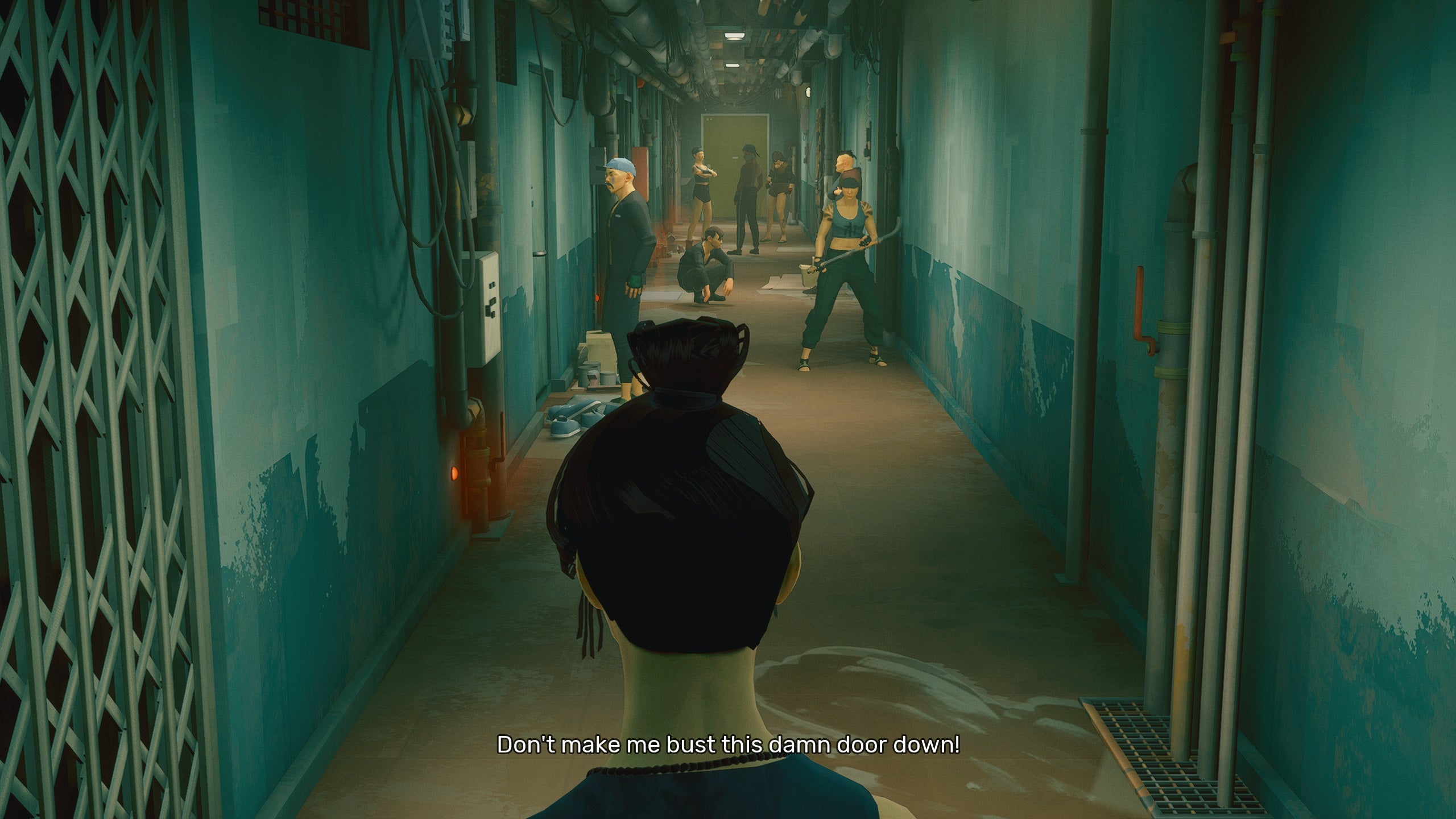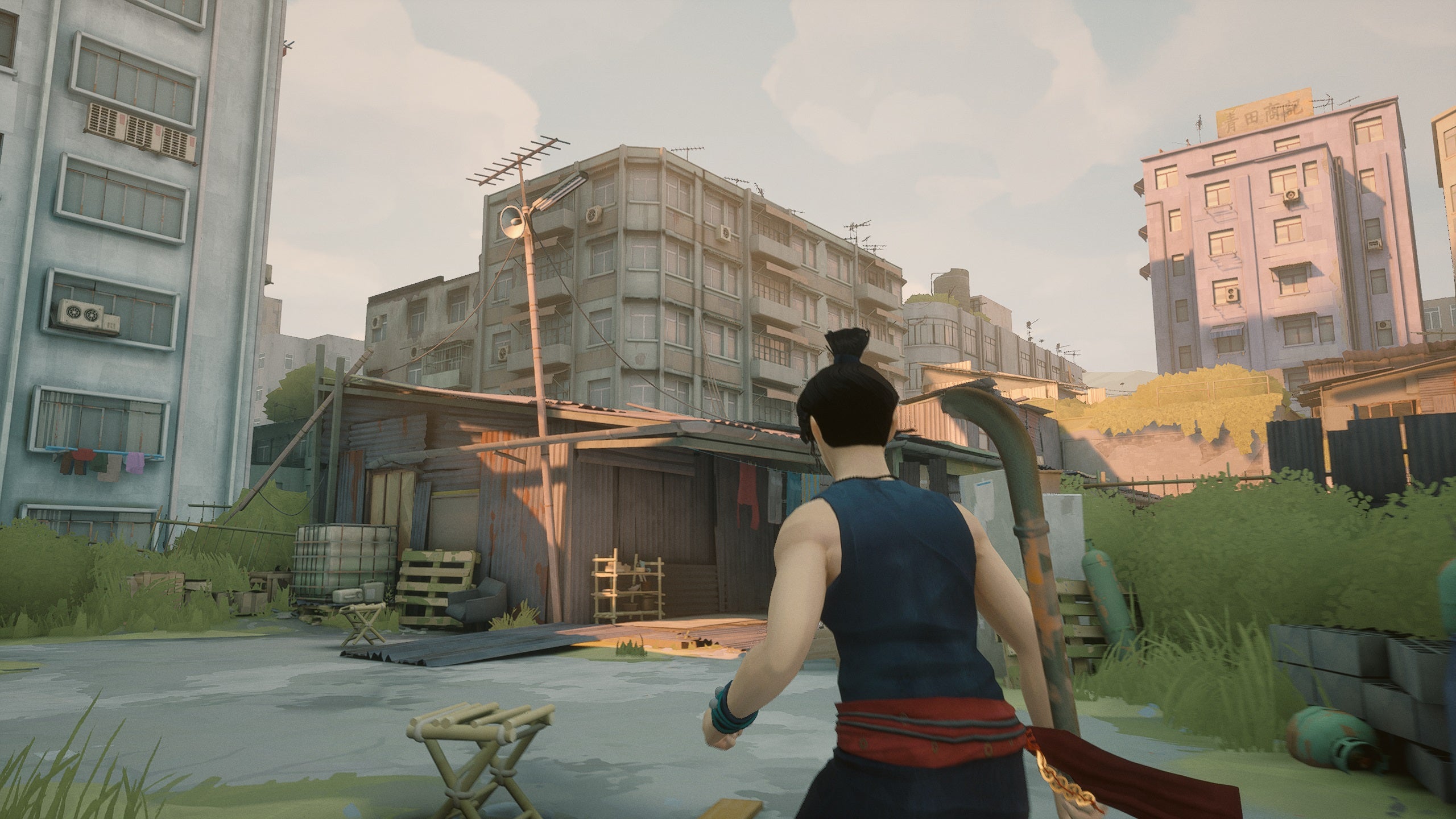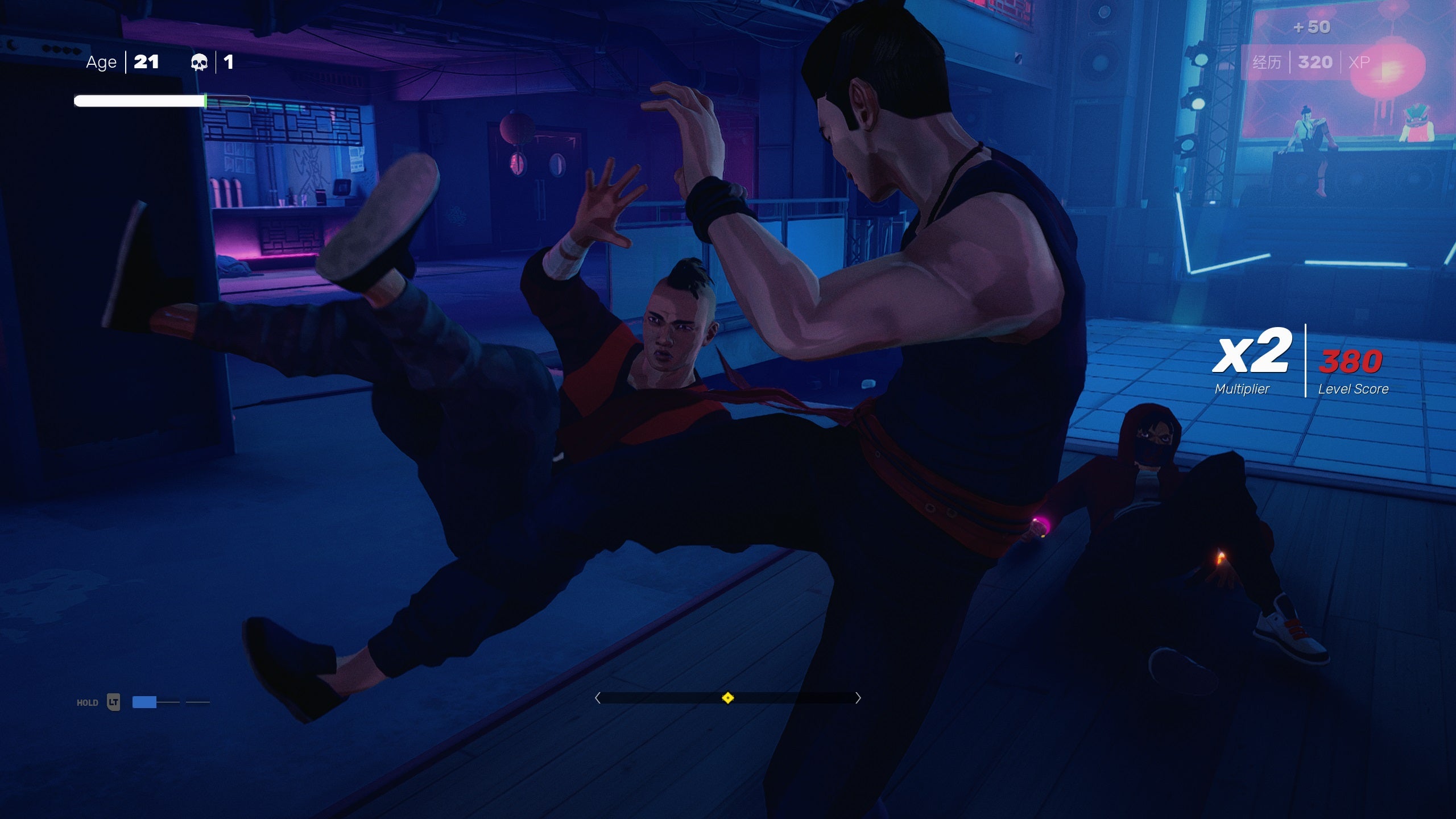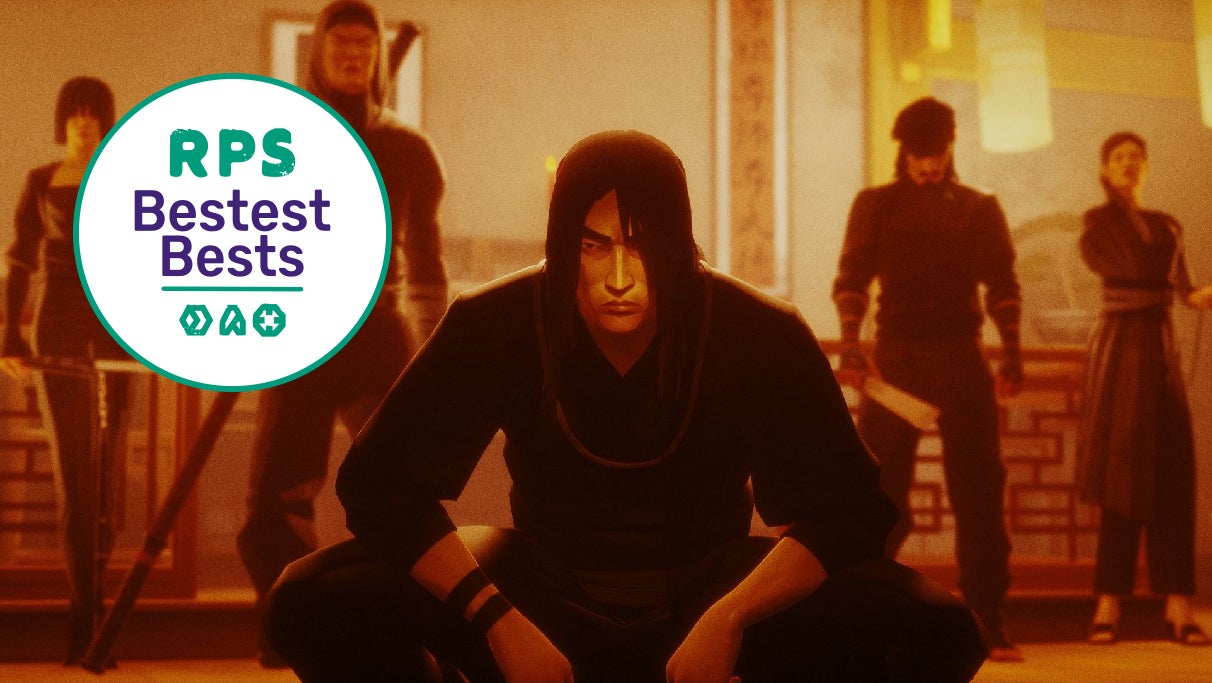Products You May Like
As far back as I can remember, I always wanted to be Jackie Chan. Not the actual guy, but the version of him in those movies, where he could clear out entire rooms using luck, martial arts and whatever he had within arm’s reach. Well, with Sifu, my childhood dream is now a reality. You don’t need to be a kung fu film fanatic to appreciate this action game, though. It’s not a tired bundle of tropes packaged together with an ironic detachment. It’s a passionate celebration of what makes the genre so good. It looks at the classics, then the modern descendants of that style, and finally puts its own unique twist on the whole thing.
When Sifu starts, though, something feels slightly off. It’s raining ominously for one, and (maybe more immediately noticeable), you’re not playing as the guy on the box art. In fact, you’re the main villain. You rock up to a kung fu school with four of your best buds, kill everybody you run into, and then make like a tree and get outta there. One of the victims caught in the murderous rampage happens to be our real main character, who was 12 at the time. Luckily, our unnamed protagonist possesses a magical talisman that has the power to bring them back to life, and as you’ve probably guessed, they choose to dedicate the rest of their existence to training in kung fu for revenge purposes. Eight years later, it’s time to hunt down the original five assailants and exact that revenge.
As a story, it maps perfectly onto the structure of a segmented video game, and each assassin, now equipped with their own form of magic, becomes a separate level for you to play through. Your aim is the same in every level: keep moving forward, defeat anyone who gets in your way, and kill the boss at the end. You technically have to complete all five levels without dying, but there’s a massive asterisk attached to that.
Whenever you die, your aforementioned talisman brings you back to life. The only catch is that every time you revive, your age increases. The more you die in quick succession, the faster you age. You start as a 20-year-old, and after every ten years of artificial aging your health bar diminishes, while your damage goes up (presumably from having taken a shortcut to increased mastery over kung fu). Your age carries over between levels with no way to undo it, and once you hit 70, that’s it, your run’s dead. Not even a magic talisman can save you from being over 70.
Once you hit 70, that’s it, your run’s dead. Not even a magic talisman can save you from being over 70
You can replay these levels at any point in Sifu, which is not only encouraged, but pretty much mandatory to beat the game. So, it helps that they’re all absolutely terrific. Sifu is set in a fictional city in present-day China, and levels are a jarring mesh between the modern and the old. I don’t really want to spoil it, but you’ll be fighting through locations like a city apartment or buzzing nightclub, all presented with a touch of literal magic. Each setting is both a beautiful piece of atmospheric level design, drenched in colour and gorgeous lighting, and a battlefield for you to ruin. Rooms are filled with tons of props and furniture just waiting for you to send enemies flying through them. Things explode, get flung across the room, and shatter into pieces, and it adds an element of visual chaos that I appreciate a lot.
You’re also not just walking into a room and fighting random people. They’re always doing their own thing before you rudely interrupt them, whether it’s backroom gambling, an illegal cage match, or even sitting about drinking. It all feels authentic. Similarly, there’ll sometimes be very small dialogue sections between fights that can be surprisingly impactful. Sometimes you can even avoid fights or engage in bonus ones. I got a lot out of it as a roleplaying tool, since the choices each convey a slightly different personality. I could choose to be either a smooth-talker, or someone only interested in the facts, or perhaps someone who elects to skip dialogue entirely by smacking whoever’s talking in the face.

The levels are a treat, but they’re also extremely long! But as you progress through them, you’ll find shortcuts to speed you along. Maybe a miniboss was carrying an access card that lets you use a previously locked off lift, for example. On top of that, the first time you play through a level you’re probably going to get your arse kicked, extending the time it takes. I was 60 years old when I finally managed to beat the first level, but later I cut that down to my early 20s. And you’re going to want to be as young as possible going into a new level, purely so you get more opportunities to learn what’s coming up ahead, and develop the skills you already have.
It’s all underpinned by a dynamic soundtrack that suits the style of the game perfectly, and traditional Chinese instruments with modern electronic music to create something unlike anything I’ve heard. It stood out in the nightclub level, where a DJ was performing the music I fought to. But as I went deeper into the level, the music transitioned to a more traditional score. It felt like reality was melting away the closer I got to the boss’s lair.

Rhythm is at the heart of Sifu’s combat. It’s unbelievable how fluid the game is in motion. You can throw any attacks out and they’ll all link together naturally. I ended up getting sent into a pseudo-meditative flow state during most of the fights, not too dissimilar from the Batman: Arkham games. All of the encounters carry a feeling of action and reaction, as if you’re following a dance partner’s footwork and trying to match it. Some wonderful motion-capture animations drive this home too; I remember seeing my character flick a bottle from the floor into their grasp and release it towards an enemy’s head within a second. I was so impressed by what I had just seen that I wasn’t even mad when I died immediately afterwards.
Make no mistake, though, Sifu is not easy. Combat uses a set of moves best viewed as a toolkit. You have a light and heavy attack, a dodge, a block, a parry and two avoids. Dodging lets you back out of a fight if you’re cornered, blocking will swallow the hit but can eventually break your guard and leave you wide open, and parrying an enemy stuns them, which you can then follow up on with a counter or a throw. Finally, an avoid in Sifu is a special state where, if you time it right, you can either duck below a high attack, or jump over a low one. It leaves enemies caught in the backswing of their animation and gives you a chance to punish them for their hubris. This isn’t even including all the weapons in the environments, either. To make it through Sifu, you need to take all your blocks of knowledge and build them together to make your fighting style into a well-rounded, impenetrable wall.

There’s an upgrade tree for combat as well, of course, but if anything it adds complexity more than it helps. You buy new moves through an XP system, and they’re all handy, but whenever a run comes to an end you lose the attacks you purchased. There is a way to permanently keep them through spending more XP, but it’s ridiculously expensive and I only used it for a few skills. I wasn’t even close to unlocking half of what’s in Sifu by the end, and the main way you’re going to be making progress is by spending more time with the game.
As complicated as it all sounds, Sifu is incredibly good at encouraging experimentation and balancing difficulty. It always feels fair, fast and consistent with its rules. I felt like all of my failures were because I wasn’t proficient enough with my tools yet. The unique death system especially goes a long way to prevent the feeling that you’re stuck. It gives you a lot of chances to see exactly what’s killing you, and once you’ve learnt enough you can defeat your murderer and move on.
If you get good enough at Sifu, you could probably run through the entire game without dying once. It’s the ultimate, get annoyed, put the game down, come back later and make tons of progress, type of game. I will say though, at one point, I was so frustrated with myself I thought I was going to eat my controller. Anyway, it nails so much on its first go that I desperately want this to be the start of a new genre. Sign me up for more. Make a Matrix spinoff if you’re feeling nuts!
